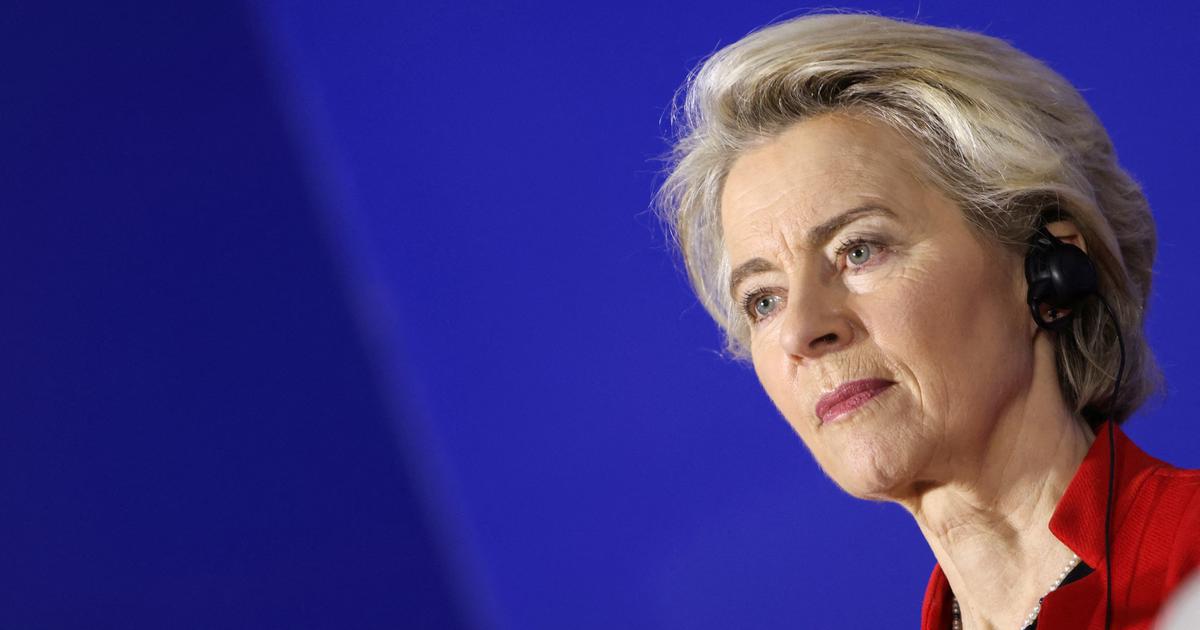It is in Germany's interest to help Tunisia: the only democracy of the Arab Spring is threatened with destabilization - with possible consequences for Europe.
Also: Armin Laschet and Markus Söder advise on vaccination privileges.
Europe must defend Tunisia's democracy
Es ist eine bedrückende Nachricht aus der einzigen Demokratie, die vor zehn Jahren aus dem Arabischen Frühling hervorgegangen ist: In Tunesien hat Präsident Kais Saied die Macht an sich gerissen – den Premier seines Amtes enthoben, die Tätigkeit des Parlaments für einen Monat ausgesetzt. Die EU und die USA sprechen bisher nicht offiziell von einem Putsch, der Präsident berief sich offiziell auf die Verfassung, aber zumindest die eindeutige Optik eines Putsches
had his approach: when he announced he was surrounded by army generals and police commanders, the military patrols the capital. The largest parties in the country are talking of a coup, above all the moderate Islamists from the Ennahda party around parliamentary president Rached Ghannouchi (who see themselves as a kind of Tunisian CDU and have been anything but radical in the past ten years).
The consequences for the country are incalculable:
Many Tunisians
are
cheering the president's actions
, because parliament and government are extremely unpopular - while Corona and the economic crisis are raging in the country, politicians were busy with their own small wars. But if the young democracy does not find its way out of its crisis, if it really comes to a coup, possibly violent clashes, then there is a long-term threat of further destabilization of the country - and that would be catastrophic for the EU.
In the worst case, a new wave of refugees from Tunisia threatens.
Preserving the previous relative stability of Tunisia is important for Europe. It is always forgotten: North Africa and the Sahel zone are of great importance for Europe, for their own security, for migration policy, and there are also close ties economically. But for years Europe has failed to safeguard these interests in the long term: This is particularly evident in neighboring Libya, a "failed state" in which Turkey, Russia and the United Arab Emirates are the most important actors.
Tunisia is not
Egypt, democracy is not lost yet.
The country has a strong civil society, political parties, a very influential unity trade union - and the role of the military is rather weak. If the president wanted to establish a dictatorship, resistance in his own country can be expected. But it is now up to the EU, including Germany, to help stabilize the country in its own interest - and not to leave the field to the Emirates or Saudi Arabia. The situation has escalated because the corona pandemic is so raging in the country that the health system is collapsing, and because the economic situation of the people, but also of the state, is absolutely precarious. In particular, there is a lack of vaccines.
As part of the »privileged partnership« it maintains with Tunisia, the EU should now offer an economic rescue
package
and promise the country significant vaccine deliveries -
but link these measures to a return to constitutional order
and the resumption of parliamentary operations.
So far, only very general statements have come from Berlin, Paris and Brussels, calling for the constitution to be respected.
And it is to be hoped that the erroneous opinion is not secretly spread there that the solution - ten years after the overthrow of dictator Ben Ali - is a new, strong man.
The economy is down, Corona has exacerbated the need: Tunisia's young democracy is on the brink
Söder asks Laschet to attend the vaccination conference
While Armin Laschet remains somewhat ambiguous in the
question of whether vaccinated could in future have privileges towards unvaccinated
and the debates would lay preferably in the autumn, Markus makes Söder Pressure:
He invited the CDU prime minister today to a switching conference
, in which Agreement should be reached on the most important questions - before there is an early Prime Minister's Conference next week.
Söder has two main concerns:
He wants to put the
free rapid tests for unvaccinated people up for debate
. He told the Augsburger Allgemeine: “It has to be clear: Anyone who has had a vaccination offer and consciously refuses it can no longer be tested free of charge in the long run.” That would be a means of applying pressure to vaccination that has often worked in Germany: via the wallet . As an unvaccinated person, you might have to pay for each test before going to a restaurant or concert.
Söder's second concern is
how to deal with returning travelers.
He wants to bring the new entry rules from September 11th to August 1st - which would have a certain logic in view of the summer vacation, which in parts of the country is almost over. Several prime ministers have recently called for a return to the old rules, in which you could only free yourself from quarantine with a second test after five days when returning from a risk area.
What
goes
with it:
As of today,
Spain and the Netherlands are
considered high-incidence areas - this has consequences especially for
those who have not been vaccinated
and for families with children
: Those who return to Germany from these countries and have neither been vaccinated nor recovered have to be in quarantine for ten days;
it can be shortened after five days with a negative test.
The big question with these rules, as well as with possible tightening, is always the same:
Who actually controls the rules?
At least in Berlin, many people entering quarantine have not even received a call from the health department in the past.
Chancellor candidate of the Union: Why the vaccination dispute is so dangerous for Laschet
America's dispute over January 6th
Fortunately, an attempted coup in a country much larger than Tunisia was unsuccessful at the beginning of the year:
the storm of Trump supporters on the US Capitol on January 6th
.
Today a committee of the US House of Representatives begins an investigation into the incidents at the time
and summons witnesses.
But this investigation, which at least theoretically would have had the potential to become a moment of national unity in the face of radical and conspiracy theoretic forces,
will only deepen the division in the country
.
This is primarily due to the Republicans.
Because only in May a large majority of its senators voted against a non-partisan national commission of inquiry based on the model of the 9/11 commission - and thereby blocked it.
Then the Speaker of the House of Representatives, Nancy Pelosi, decided to set up a parliamentary commission of inquiry. But their Republican adversary Kevin McCarthy also nominated radical representatives of his party who had voted against the certification of Joe Biden's election victory (because they supported the lie of electoral fraud). Pelosi rejected these Republicans, whereupon McCarthy withdrew all his party members - and
now there are only two Republican MPs on the commission who are absolute outsiders in their group
: Liz Cheney and Adam Kinzinger. That in turn gives the Republicans the opportunity to dismiss the commission of inquiry as unbalanced. And what is the result?
The events of January 6th become pure party politics.
And that's not good news for American democracy.
SPIEGEL interview with US bestselling author Michael Wolff on his conversation with Donald Trump about the storming of the Capitol
The American withdrawal from Iraq has been decided
US President
Joe Biden
is moving forward in bringing American troops home some twenty years after the September 11, 2001 attacks that followed America's wars in Afghanistan and Iraq.
Most of the withdrawal from Afghanistan has already taken place,
and the end of the combat mission in Iraq has now officially been decided
.
During the visit of the
Iraqi Prime Minister Mustafa al-Kadhimi
on Monday, the two agreed on the terms: By the end of the year, the US combat forces should have left the country that George W. Bush attacked in 2003. This has a high symbolic value - however, US troops will continue to stay in the country to support Iraq in the fight against IS and to train Iraqi soldiers. It is possible that in the end there will not even be fewer soldiers than the 2,500 who are still deployed in the country.
America's withdrawal from the Middle East is in line with the will of US voters
, but it will not remain without consequences: in Afghanistan, the
Taliban have
been on the rise since the US withdrawal.
And if the USA withdraws from Iraq, the regional power
Iran
, which already has enormous influence in Baghdad
, can be particularly
pleased.
Loser of the day ...
... are those
European citizens who live in the USA or have to travel to the USA for family reasons
: The US government's corona entry restrictions still apply to them. Even though the EU has long since suspended its entry ban for US citizens. Only those who receive a so-called National Interest Exception in addition to their visa are still allowed to travel to the USA - and only selected industries receive them. During the US visit by Chancellor Angela Merkel, President Joe Biden indicated an early solution and said it would discuss how soon the restrictions could be lifted. But now White House spokeswoman Jen Psaki said they would stick to the rules because of the Delta wave. The question for the EU now arises: Can this unequal treatment be explained to its own citizens - or does entry from the USA have to be restricted again?
The latest news from the night
North and South Korea are talking to each other again:
there was radio silence for over a year - now there is an official rapprochement between North and South Korea.
The heads of state have been writing letters since April
Corona pandemic: Federal government is apparently planning stricter rules for travelers returning.
Will travelers have to present a negative corona test when they arrive in Germany in the future - regardless of where they come from and what means of transport they come from?
According to a report, Health Minister Jens Spahn wants it
Surfside in Florida: Last missing person identified after high-rise collapse.
Now there is certainty: 98 people died in the collapse of the Surfside skyscraper.
The Mayoress of Miami-Dade speaks of an "unthinkable tragedy".
Nothing could bring the "angels" back
The SPIEGEL + recommendations for today
Stock tokens as a financial investment: This is how synthetic stocks stir up the financial world
Friedrich, eight years old: "His intelligence knows no limits"
Science speaks of the »Proteus effect«: Why a 50-year-old Japanese pretends to be a young woman on Twitter
Germany's skater Lilly Stoephasius: When children become Olympic stars
I wish you a good start to the day.
Sincerely,
your Mathieu von Rohr



/cloudfront-eu-central-1.images.arcpublishing.com/prisa/RYPA5FRAZ3W4EBDJLA3A5T2ZBI.jpg)











